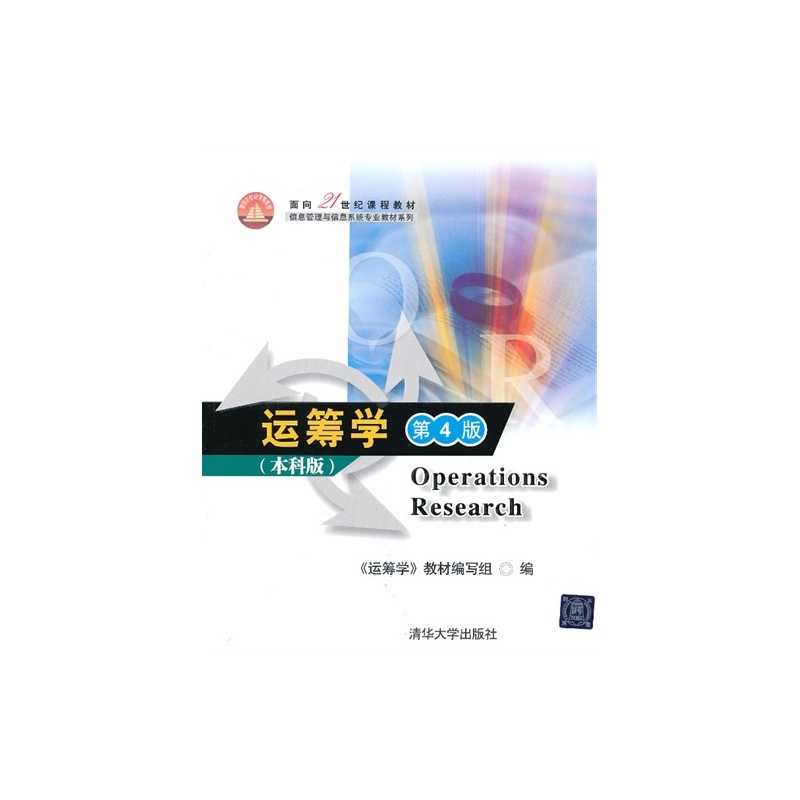
当前课程知识点:制浆造纸机械与设备 > 第十四章 造纸机干燥装置 > 14.2 烘缸、烘毯缸和冷缸 > 14.2.2 烘缸、烘毯缸和冷缸(下)
同学们好
Hello everyone
今天讲烘缸的
Today, I’m going to talk about the
冷凝水排出装置
condensate water discharge device for the dry cylinder
大多数烘缸都以蒸汽为热源
Most dry cylinder use steam as the heat source
由于蒸汽的冷凝
As the steam condenses
烘缸内就会产生冷凝水
condensate water is produced in the dry cylinder
当烘缸旋转时
When the dry cylinder rotates
冷凝水在烘缸内受到
the condensate water is subjected to
粘滞力、惯性力、离心力
viscous force, inertia force, centrifugal force
及重力的作用
and gravity in the dry cylinder
粘滞力
Viscous force
使冷凝水有跟
The condensate water has the tendency
烘缸转动的倾向
to rotate with the dry cylinder
惯性力
Inertia force
使冷凝水的运动减速
To slow down the movement of condensate water
离心力
Centrifugal force
使冷凝水与烘缸内壁紧贴
Tighten the condensate water to the inner wall of the dry cylinder
重力
Gravity
使冷凝水落到烘缸底部
cause the condensate water to fall to the bottom of the dry cylinder
冷凝水的受力情况
The stress of condensate water
与烘缸的直径
is related to the diameter of the dry cylinder
冷凝水量
the amount of condensation water
及纸机的车速有关
and the speed of the paper machinery
当烘缸直径
When the diameter of the dry cylinder
和水量一定时
and the amount of water is fixed
随着纸机车速的提高
with the increase of the speed of the paper machinery
冷凝水在烘缸内
condensate water in the dry cylinder
可以出现不同的形态
can appear different shapes
当车速在200m/min以下
When the speed is below 200 m/min
重力占优势
the gravity is dominant
这时候冷凝水
at this point, the condensate water
聚积在缸底
accumulates at the bottom of the cylinder
在烘缸内壁形成了一层
forming a very thin wetting water film
很薄的润湿水膜
on the inner wall of the dry cylinder
当车速在200到300m/min之间
When the speed is between 200 and 300 m/min
粘滞力增加
the viscous force increases
对缸底积水
There is a drag effect on the water
有拖动作用
accumulated at the bottom of the cylinder
冷凝水沿缸壁有些上升
The condensate water rises along the wall of the cylinder
然后回流到缸底
and then flows back to the bottom of the cylinder
当车速达到300m/min
When the speed reaches 300 m/min
惯性力增加
the inertia force increases
冷凝水被抛到较高的
Condensate water is thrown to a higher position
烘缸壁位置上
on the wall of the dry cylinder
但是重力仍然占优势
but gravity is still dominant
使冷凝水发生突变
causing the condensate water to mutate
从缸壁开始溃散
and break away from the wall
返回缸底
and return to the bottom of the cylinder
当车速继续增加到300m/min以上
As the speed continues to increase above 300m/min
冷凝水受到的离心力
and the centrifugal force of the
超过重力时
condensate water exceeds gravity
沿烘缸的内壁形成
a complete and uniform water ring is formed
一个完整均匀的水环
along the inner wall of the dry cylinder
冷凝水在烘缸内积存
The accumulation of condensate water
会产生很多危害
in the dry cylinder can cause a lot of damages
首先,冷凝水的导热系数
First of all, the thermal conductivity of condensate water
只有铸铁导热系数的1/88
is only 1/88 of that of cast iron
烘缸内积存冷凝水
The accumulation of condensate water in the dry cylinder
会增加烘缸的热阻
will increase the thermal resistance of the dry cylinder
降低干燥效率
reduce the drying efficiency
增加纸机功耗
and increase the power consumption of the paper machinery
其次,车速较高时
Secondly, when the speed is high
烘缸内冷凝水环的
the formation and destruction of condensate
形成和破坏(临界厚度)
water ring in the dry cylinder (critical thickness)
引起烘缸传动功率的剧烈波动
cause the sharp fluctuation of the driving power of the dry cylinder
影响纸机的正常运行
which affects the normal operation of the paper machinery
另外,冷凝水测积存
In addition, condensate water storage
还会导致烘缸部
will lead to an irregular temperature difference
出现不规则的温差
in the dry cylinder part
造成纸幅干燥不匀
resulting in unevenness and drying of the paper web
因此,必须根据不同的车速条件
Therefore, different forms of condensate water removal devices
采用不同形式的冷凝水排除装置\ N must be adopted according to different speed conditions
有效地排除烘缸内的冷凝水
to effectively eliminate condensate water in the dry cylinder
烘缸的冷凝水排出装置
There are many types of condensate water
有多种型式
discharge devices for dry cylinder
第一种是戽斗式排水装置
The first type is scoop-type drainage device.
戽斗是呈蜗线性的中空铸铁管
The scoop is a linear hollow cast iron pipe
界面呈矩形
with a rectangular interface
一般采用焊接结构
It generally adopts the welding structure
固定在烘缸内传动侧端盖上
and is fixed on the drive side cover in the dry cylinder
随烘缸转动
As the dryer rotates
戽斗从烘缸下部
the scoop drains the condensate water from
把冷凝水舀出
the lower part of the dry cylinder
送到轴头内壁
to the annular gap between the inner wall of the shaft head
与烘缸供汽管之间的环隙排出
and the steam supply pipe of the dry cylinder
主要适用于300m/min以下的
It is mainly suitable for large diameter dry cylinder
低速纸机的大直径烘缸
of low speed paper machinery under 300m/min
第二种是固定虹吸管式排水装置
The second type is a fixed siphon type drainage device
用于300m/min以下低速造纸机
It is used for low speed paper machinery under 300 m/min
通常使用简单固定虹吸管
simple fixed siphon is usually used
对于550m/min以上的造纸机
For paper machinery with speed above 550m/min and
主要使用具有吸水头的虹吸管
siphon with suction head is mainly used
吸水头与烘缸内表面的
The distance between the suction head and
距离为2~3亳米
the inner surface of the dry cylinder is 2~3 mm
当车速超过200米/分时
When the speed exceeds 200m/minute
由于冷凝水有
due to the tendency of condensate water
随烘缸转动的倾向
to rotate with the dry cylinder
虹吸管应偏向烘缸转动方向
the siphon shall be mounted at a 15~20°angle
一边15~20°角安装
in the direction of rotation of the dry cylinder
虹吸管式排水装置通常采用
The siphon type drainage device usually adopts
一根带圆弧的钢管
one steel pipe with circular arc
一端与进汽头连接
wherein one end is connected with the steam intake head
另一端悬在缸体内
the other end is suspended in the cylinder body
运转时缸体与虹吸管相对运动
and the cylinder body moves relative to the siphon when running
由于悬臂固定及管子挠曲
Because the cantilever is fixed and the pipe is bent
在管头触及烘缸时
when the pipe head touches the dry cylinder
或是由于冷凝水环
or because of the hydraulic shock
形成的水力冲击
formed by the condensate water ring
容易发生损坏
it is easy to be damaged
应注意检查
the inspection shall be carried out
针对常规虹吸管易损坏
The structure of the new siphon has been improved
导致虹吸不起作用的问题
in view of the problem that the conventional siphon
新型虹吸管的结构又有改进
is easy to be damaged and the siphon does not work
比如,在虹吸管弯曲处
For example, a steel-wire hose structure
采用钢丝软管结构
is used at the bend of the siphon
靠吸管自重自然向下弯曲
which naturally bends downward by the weight of the siphon
另外,将弯管弯曲成60°角
In addition, bending the pipe to 60°angle
在水平管和弯管之间
and installing a vertical stiffener between
安装一个垂直加强筋
the horizontal pipe and the bend pipe
可使垂直虹吸管的吸水端
can make the suction end of
得到固定和稳定
the vertical siphon fixed and stable
使其挠曲和振动
so that its flexure and vibration can
减小到最低值
be reduced to the lowest value
还可以精确调节
and the gap between the suction head and
吸水头与烘缸壁的间隙
the wall of the dry cylinder can be precisely adjusted
对于300m/min以上的中高造纸机
Double-rotating siphon can be used for
可以采用双旋转虹吸管
medium-high paper machinery over 300m/min
这种结构能有效
This structure can effectively eliminate
排除成水环状的以及
condensate water which is formed into water ring
聚积在烘缸下部的冷凝水
and accumulated in the lower part of the dry cylinder
这种虹吸管固定在
The siphon is fixed on the
传动侧的烘缸盖上
dry cylinder cap on the drive side
每根管端上装有吸水头
and each pipe end is provided with a suction head
吸水头带有可调节长度的支杆
with support rod which length can be adjusted
把虹吸管支持在
to support the siphon in a
对烘缸内表面的固定位置上
fixed position on the inner surface of the dry cylinder
吸水头与烘缸之间的
the height of the water diversion joint between the
引水缝高度为1.25~2毫米
suction head and the dry cylinder is 1.25~2 mm
其排水原理是
The drainage principle is as follows
当冷凝水形成水环时
when condensate water forms a water ring
利用虹吸或喷射原理排水
it is drained by siphon or injection principle
当冷凝水聚集在下部时
when condensate water accumulates in the lower part
排水与戽斗相同
the drainage is the same as that of the scoop
双旋转虹吸管可以保持
The double rotating siphon can keep the
冷凝水层的厚度<0.8毫米
thickness of condensate water layer less than 0.8 mm
传热效率得到显著提高
and the heat transfer efficiency is improved remarkably
旋转虹吸管排水时
When the rotary siphon drains
除了克服提升凝结水重力
in addition to overcome the resistance
产生的阻力外
caused by lifting the gravity of condensate water
还要克服离心力上升的助力
but also to overcome the assistance of centrifugal force
特别是高速造纸机
especially in high-speed paper machinery
冷凝水受到的离心力成倍增加
the centrifugal force of condensate water is multiplied
烘缸和排水管之间的
The pressure difference between the dry cylinder
压差要非常大
and the drainage pipe shall be very large
这是烘缸内壁
This is the inner wall of the dry cylinder
即使只有很薄的滞留层水环
even if only a very thin retention layer of water ring
仍会产生很大热阻
will still produce a large thermal resistance
影响传热效率
affecting the heat transfer efficiency
和纸机运行性能
and paper machinery performance of operation
为解决冷凝水滞留问题
In order to solve the problem of condensate water retention
可以对旋转虹吸式
some improvements can be made
排水装置做一些改进
to the rotary siphon drainage device
比如在烘缸内设置扰流棒
For example, a turbulence bar is arranged in the dry cylinder
使冷凝水环产生振荡
to cause the condensate water ring to oscillate
然后,冷凝水被扰流棒
then, the condensate water is directed
导向成为轴向流动
by the turbulence bar into an axial flow
进入端部环形槽内
into the annular slot at the end
被固定虹吸管排出
and is discharged by a fixed siphon
这种扰流棒一般高60mm
The turbulence bar is 60 mm high
宽50mm左右
and 50 mm wide
可以采用磁力固定
It can be fixed by magnetic
或是弹性加紧环固定
or elastic tightening ring
为进一步提高
In order to further improve the
烘缸的传热效率
heat transfer efficiency of the dry cylinder
烘缸的结构也
the structure of the dry cylinder
进行优化改进
is also optimized and improved
发展出多开口烘缸
and the multi-opening dry cylinder
及夹层烘缸
and the interlayer dry cylinder are developed
多开口烘缸
Multi-opening dry cylinder
蒸汽通过在烘缸
The condensate water is discharged out
内表面上纵向开的
of the dry cylinder by the flow of steam
小沟槽内的流动
through the small grooves lengthwise
将凝结水排出缸外
open on the inner surface of the dry cylinder
而使凝结水形成的
to minimize the heat insulation water ring
隔热水环降到最小值
formed by the condensate water
夹层烘缸
Interlayer dry cylinder
蒸汽直接通入到
steam goes directly into the ring wall
接近烘缸圆周的环壁中去
near the circumference of the dry cylinder
可以降低烘缸的重量
which can reduce the weight of the dry cylinder
并减少大型烘缸中蒸汽引进
and reduce the problem of steam inlet and
和凝结水排出难的问题
condensate water discharge in the large-scale dry cylinder
而且传热性能等非常好
and heat transfer performance is very good
但制造成本比较高
but the manufacturing cost is relatively high
今天的课就讲到这里
So much for this lesson
谢谢大家
thank you all
-1.1 备料概述
--1.1 备料概述
-1.2 木材备料机械与设备
-1.3 非木片筛及木材备料辅助设备
--讨论
-第一章测试 备料机械与设备
--第一章测试 备料机械与设备
-2.1 化学制浆概述
--讨论
-2.2 间接式蒸煮设备
-2.3 连续式蒸煮设备
-第二章测试 化学制浆机械与设备
--第二章测试 化学制浆机械与设备
-3.1 概述及磨石磨木机
-3.2 盘式磨浆机
--讨论
-3.3 搓丝机
--3.3 搓丝机
-3.4 高得率制浆的附属设备及发展
-第三章测试 高得率制浆机械与设备
--第三章测试 高得率制浆机械与设备
-4.1 概述
--4.1 概述
-4.2 洗涤与浓缩设备
-第四章测试 洗涤浓缩机械与设备
--第四章测试 洗涤浓缩机械与设备
-5.1 概述
--5.1 概述
-5.2 筛选设备
--5.2 筛选设备
-5.3 净化设备
--5.3 净化设备
-第五章测试 筛选净化机械与设备
--第五章测试 筛选净化机械与设备
-6.1 概述
--6.1 概述
-6.2 碎浆机
--6.2 碎浆机
-6.3 浮选槽
--6.3 浮选槽
--讨论
-6.4 热分散机
--6.4 热分散机
-6.5 废纸造纸废水处理设备
-6.6 废纸制浆流程设计及生产线
-第六章测试 废纸制浆及脱墨机械与设备
--第六章测试 废纸制浆及脱墨机械与设备
--讨论
-7.1 纸浆清洁漂白常用流程
-7.2 中浓浆泵、中浓混合器及高浓混合器
-7.3 中浓纸浆氧脱木素塔、二氧化氯漂白塔、过氧化氢漂白塔及碱处理塔
--7.3 中浓纸浆氧脱木素塔、二氧化氯漂白塔、过氧化氢漂白塔及碱处理塔
--讨论
-第七章测试 漂白机械与设备
--第七章测试 漂白机械与设备
-8.1 纸浆在输送管道中的压头损失及浆泵扬程
--讨论
-8.2 纸浆输送机械
--讨论
-8.3 纸浆贮存设备
-第八章测试 纸浆输送及贮存机械与设备
--第八章测试 纸浆输送及贮存机械与设备
-9.1 打浆设备概述
-9.2 打浆机和圆柱形磨浆机
-9.3 锥形磨浆机
-9.4 盘磨机
-9.5 中、高浓盘磨机及疏解设备
-第九章测试 打浆及疏解机械与设备
--第九章测试 打浆及疏解机械与设备
-10.1 造纸机的发展、组成与分类
--实验室小纸机展示
--大国工匠精神
-10.2 造纸机的规格及长网机的配置
-10.3 造纸机的专用名词术语
-第十章测试 造纸机概述
--第十章测试 造纸机概述
-11.1 纸浆流送系统
--讨论
-11.2 纸浆流送系统的相关操作单元及设备
-11.3 流浆箱的概述
-11.4 流浆箱的布浆器
-11.5 堰池、匀整装置和上浆装置
-11.6 稀释型水力式流浆箱
-第十一章测试 纸浆流送设备与流浆箱
--第十一章测试 纸浆流送设备与流浆箱
-12.1 概述
--12.1 概述
-12.2 长网成形装置
--讨论
-12.3 圆网成形装置
-12.4 夹网成形装置
-12.5 复合型成形器、叠网成形器及网部的辅助装置
-第十二章测试 造纸机成形装置
--第十二章测试 造纸机成形装置
-13.1 概述
--13.1 概述
-13.2 双辊压榨
-13.3 压榨部的引纸装置
-13.4 压榨配置方式及复式压榨
--讨论
-第十三章测试 造纸机压榨装置
--第十三章测试 造纸机压榨装置
-14.1 概述
--14.1 概述
-14.2 烘缸、烘毯缸和冷缸
--讨论
-14.3 供热系统
-14.4 强化装置及辅助设备
-第十四章测试 造纸机干燥装置
--第十四章测试 造纸机干燥装置
-15.1 压光机概述
-15.2 压光机的主要部件
-15.3 普通压光机、半干压光机及光泽压光机
-15.4 软辊压光机、超级压光机及卷纸机
-第十五章测试 压光机和卷纸机
--第十五章测试 压光机和卷纸机
-16.1 概述及涂料制备设备
-16.2 涂布器和干燥器
-第十六章测试 涂布机械与设备
--第十六章测试 涂布机械与设备

